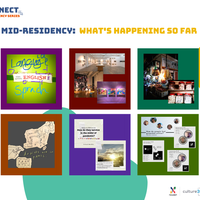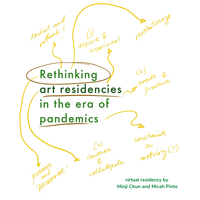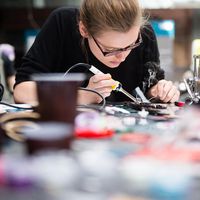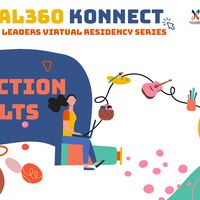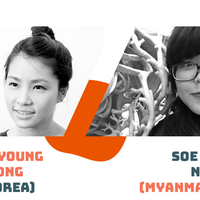Virtual360 Konnect | Together, Wired

Virtual360 Konnect residents Faiq Airudin from Brunei Darussalam and Chloe Lynne Choi from Korea collaborated throughout October 2020 to address the lack of options regarding spontaneity and subtlety in current modes of online communication software. Their collaboration resulted in a newly invented design that allows for more control over communication.
The authors worked with the notion that current forms of technology are insufficient in mirroring human interactions of the real world. This has become ever more important in light of current circumstances: the COVID-19 outbreak has relegated human interactions to the online space, and therefore online modes of communication need to fill the gap in communication as fully as possible.
Gaps in communication
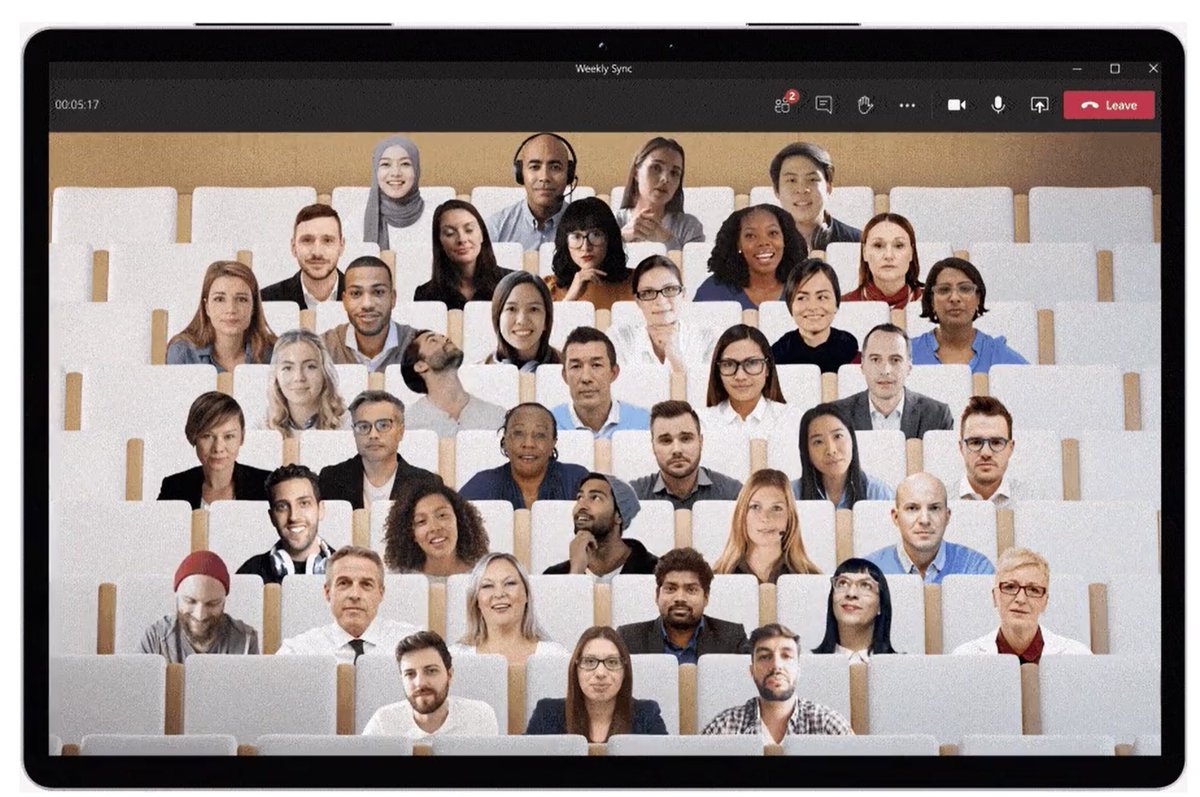
A feature in Microsoft Teams that aims to emulate a classroom environment. Image Credits: Microsoft Teams
The gap in communication is evident. Prevalent software applications such as Zoom, Google Meet, Microsoft Teams, and BlueJeans allow for closed-group discussions and offer useful features such as screen-sharing, recording, breakout rooms, etc. However, these platforms fail to provide the spontaneity inherent in everyday interactions. Meetings that occur via these platforms are scheduled ahead of time and proceed for a set duration, without deviating from the initial path. The environment does not allow for random conversations or digressions that lead to new and interesting insights. Nor do they allow for subtlety or privacy. When participants speak out, their words are broadcasted to the entire group. Breakout rooms do exist, but the fact that someone has exited or entered a group is relayed to everyone, and the lack of subtlety can be overwhelming and can end up stifling participation and engagement.
Insight From Multiplayer Games
To arrive at a solution, the Chloe and Faiq arranged weekly discussions and observed how multiplayer games empower users to socialise in the online space. Successful games such as Final Fantasy XIV or Animal Crossing: New Horizons, multiplayer role-playing games, have allowed for socialisation during the pandemic. These games feature recognisable environments, objective-specific locations, physical orientation, shared tasks, real-time dynamics, and customisable avatars to emulate real-life situations. A noticeable element was that of proximity: in Final Fantasy XIV there is the option to chat with users in a set radius, and certain actions can be enhanced through teamwork when users are within range. In Animal Crossing, users can invite others to their “islands” to play mini-games and engage in conversations. The simulation of proximity seemed to be the key to providing the subtlety and spontaneity inherent in real-life interactions.
Discussion on Online Interactions
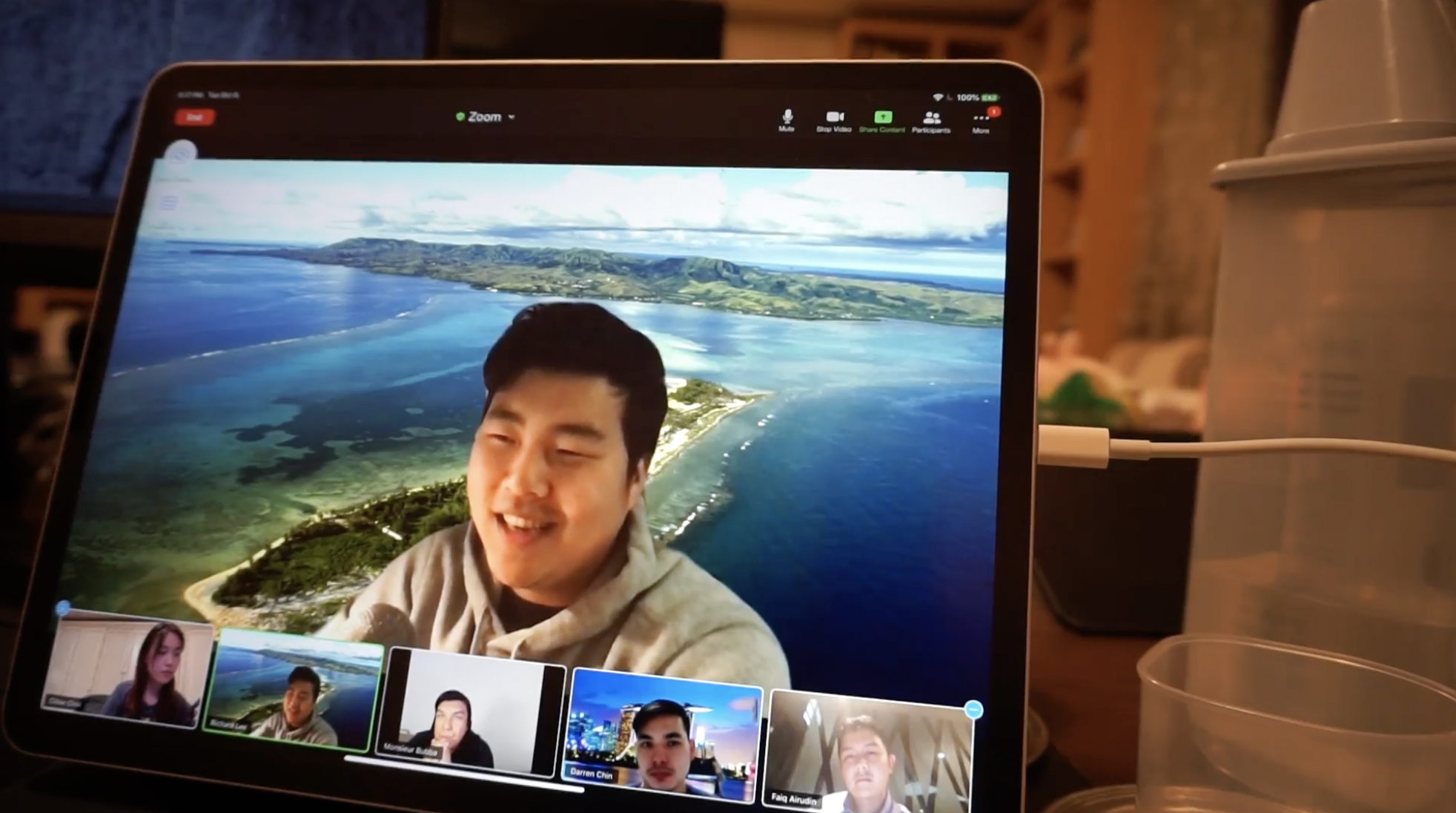
In the Zoom discussion, participants shared personal anecdotes and observations about going online during the pandemic. Photo courtesy of the authors
To gain more insight, the authors gathered volunteers from around the world to participate in a focus group where participants shared their experiences of going online during the pandemic. Participants include Richard Lee from Guam, Akshita Bawa from India, Mohd Bubba from Brunei, and Darren Chin from Malaysia. The focus group brought forth exciting points and concepts that aimed to describe how individuals feel online and the different interactions allowed in physical and virtual spaces. To summarise some of the points raised:
- Individuals may feel uneasy because calls are recorded, and their postures are broadcasted to an entire group. This may lead individuals to filter the way they speak. This is one of the reasons for being drained after a full day of online calls.
- Having to be in several online spaces in a short period causes emotional confusion.
- People tend to think that the current situation is temporary, and this causes inadaptability. Thus, they are driven to rely on old technology to fill current needs instead of creating new solutions.
- The need to interact with friends, family, and loved ones carries through interactions online.
- The fireplace effect – the phenomenon that leads people in the same space going through a shared experience to subsequent interactions – is a crucial part of physical meetings that is missing in the online space.
The focus group's discussions laid out a blueprint of what problems the authors should tackle to improve on the status quo.
To listen to the full discussion as a podcast you can visit http://faiqairudin.com/art-2/together-wired-discussion/
Solution and Feedback
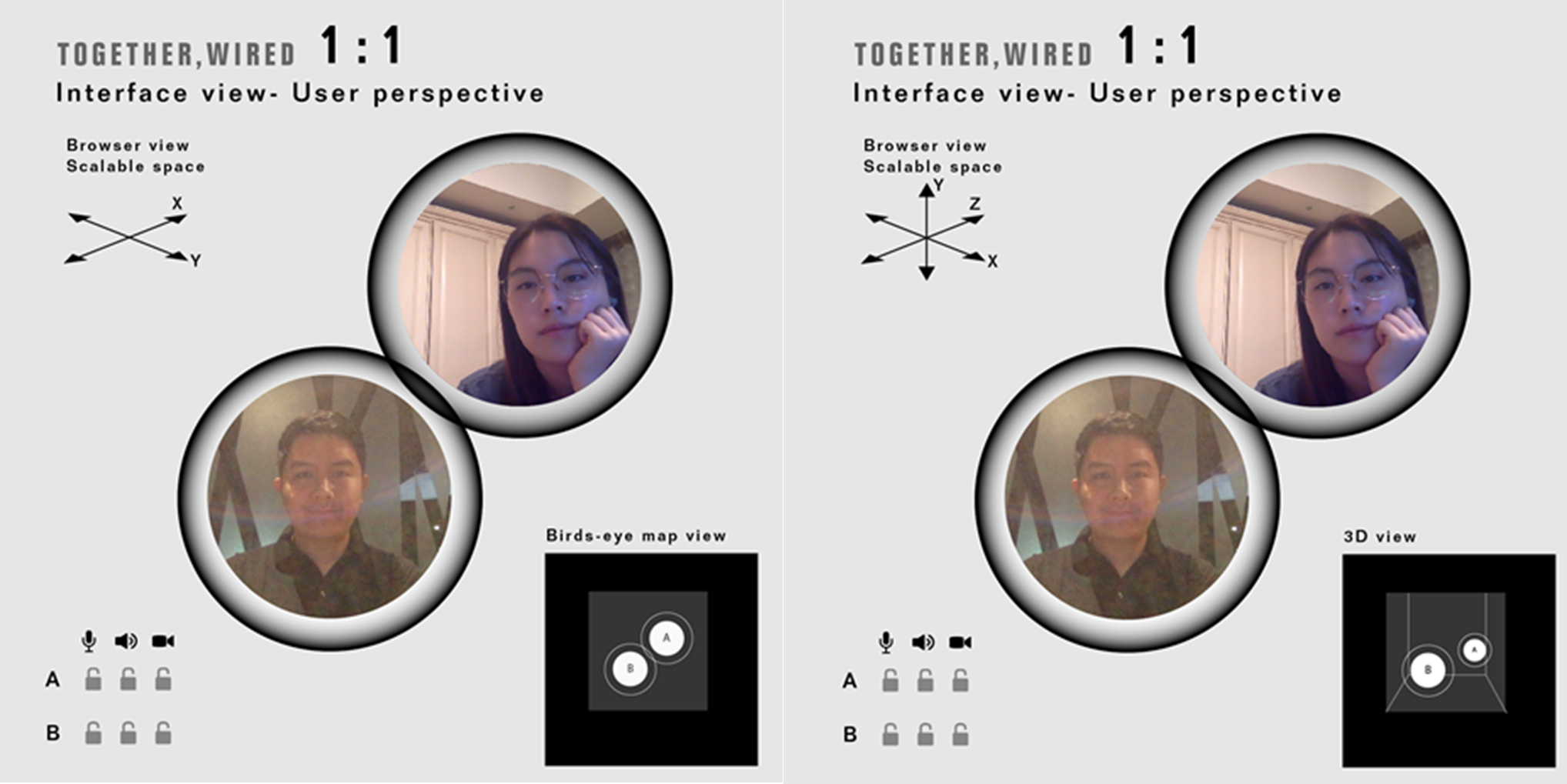
The two graphics were created to illustrate the concept. Graphics courtesy of authors
Taking the feedback from the focus group discussions, the authors started envisioning how a singular space can be utilised for multiple scenarios. They conceptualised a singular customisable space in which interactions are based on individuals’ proximity to one another, allowing for movement in X and Y axes, possibly even Z. Furthermore, they created three different types of communication: ‘tell’, which allows private messaging between two individuals, ‘say’, which allows communication based on proximity between a group of individuals, and ‘shout’, which allows communication globally. The space can suit various purposes, from small discussions to classes and conferences. It allows users to interact with each other through movement and proximity along with their voice and video. Individuals can break out with more subtlety, without having to exit the room or rely on text.
The authors sought user feedback through interviews and surveys to gauge whether the proposed solution would improve the current online experience. Many expressed that while the solution may need some work, the proposed interactions are interesting, which was the intended response. Some volunteers expressed that they had no reason to stay in this space, apart from scheduled meetings and classes. This would put this solution in the same category as other platforms in which everything needs to be planned ahead of time and there are no spontaneous interactions.
One volunteer explained how he is always logged into League of Legends, an online multiplayer game, even when he is not playing, because of spontaneous invites from friends to play a game, as in the spontaneous interaction of real life. Game clients such as League of Legends carry great potential for unplanned interaction, an element that needs to be incorporated into the solution. Indeed, benefits could be reaped from applying such concepts to a more professional and daily setting. Overall, the volunteers shared that the interactions are refreshing and that they are excited about the implementation of the solution.
Conclusion
Discussions over the course of the Virtual360 Konnect residency allowed the authors to realise the limitations of current online communication. Because prior technology was meant for a pre-COVID society, there is a need for new ways to interact online. Moving forward, the authors intend to create a robust and customisable system for online space experience. They intend to provide users with blank rooms with the option for customisation. Furthermore, they intend to look into methods of hosting the concept online so that the space is readily available.
Links for further reading
http://faiqairudin.com/art-2/together-wired-discussion/
https://slate.com/technology/2020/10/long-live-zoom-class-chat-remote-learning.html
https://frictionalgames.com/2017-05-planning-the-core-reason-why-gameplay-feels-good/
This article is part of a series of articles written by the participants of Virtual360 Konnect - Emerging Arts Leaders Virtual Residency Series, an online cultural exchange and capacity building initiative developed by the Asia-Europe Foundation (ASEF) and the ASEAN Foundation through KONNECT ASEAN. Over a period of one month, 20 emerging art leaders from Korea and 5 countries of the ASEAN region (Brunei Darussalam, Indonesia, Malaysia, Myanmar, Philippines and Singapore) collaborated in pairs on the theme of international cultural exchange in the Covid-19 era.
Similar content
18 Oct 2020
posted on
21 Sep 2020
from - to
14 Jul 2022 - 17 Jul 2022
By Soe Yu Nwe and Nayoung Jeong
25 Nov 2020

